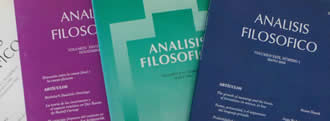Conferencias de Paolo Mancosu (UC Berkeley)
Información adicional
- Fecha: 19 y 22 de junio
- Arancel Socios: sin cargo
- Arancel No Socios: $ 50
http://philosophy.berkeley.edu/mancosu/
Martes 19 de junio, 17.00 hs.
“Axiomatics and purity of methods: On the relationship between plane and solid geometry”
Traditional geometry concerns itself with planimetric and stereometric considerations, which are at the root of the division between plane and solid geometry. To raise the issue of the relation between these two areas brings with it a host of different problems that pertain to mathematical practice, epistemology, semantics, ontology, methodology, and logic. In addition, issues of psychology and pedagogy are also important here.
In this talk (which is based on joint work with Andy Arana), my major concern is with methodological issues of purity. In the first part I will give a rough sketch of some key episodes in mathematical practice that relate to the interaction between plane and solid geometry. In the second part, I will look at a late nineteenth century debate (on “fusionism”) in which for the first time methodological and foundational issues related to aspects of the mathematical practice covered in the first part of the paper came to the fore. I conclude this part of the talk by remarking that only through an axiomatic and analytical effort could the issues raised by the debate on “fusionism” be made precise. The third part of the talk focuses on Hilbert's axiomatic and foundational analysis of the plane version of Desargues’ theorem on homological triangles and its implications for the relationship between plane and solid geometry. Finally, building on the foundational case study analyzed in the third section, in the fourth section I point the way to the analytic work necessary for exploring various important claims on “purity”, “content” and other relevant notions.
viernes 22 de junio, 17.00 hs.
“Measuring the size of infinite collections of natural numbers: Was Cantor's theory of infinite number inevitable?”
Cantor’s theory of cardinal numbers offers a way to generalize arithmetic from finite sets to infinite sets using the notion of one-to-one correspondence between two sets. As is well known, all countably infinite sets have the same ‘size’ in this account, namely that of the cardinality of the natural numbers. However, throughout the history of reflections on infinity another powerful intuition has played a major role: if a collection A is properly included in a collection B then the ‘size’ of A should be less than the ‘size’ of B (part-whole principle).
This second intuition was not developed mathematically in a satisfactory way until quite recently. In this talk I begin by reviewing the contributions of some thinkers who argued in favor of the assignment of different sizes to infinite collections of natural numbers. Then, I present some recent mathematical developments that generalize the part-whole principle to infinite sets in a coherent fashion. Finally, I show how these new developments are important for a proper evaluation of a number of positions in philosophy of mathematics which argue either for the inevitability of the Cantorian notion of infinite number (Gödel) or for the rational nature of the Cantorian generalization as opposed to that, offered by Bolzano, based on the part-whole principle (Kitcher).





